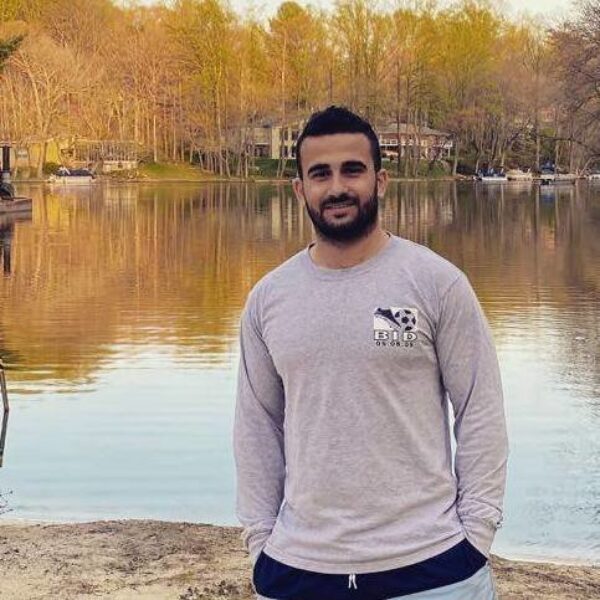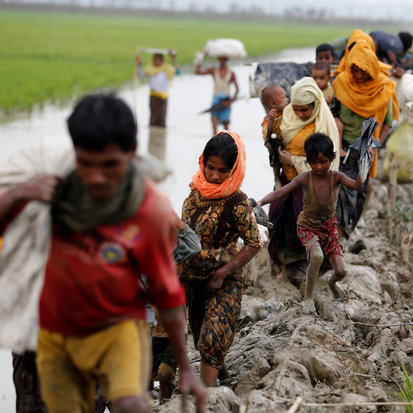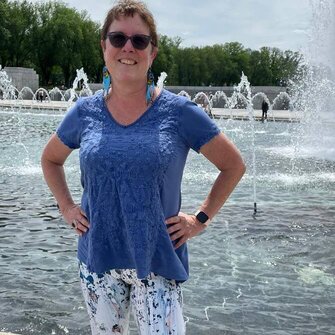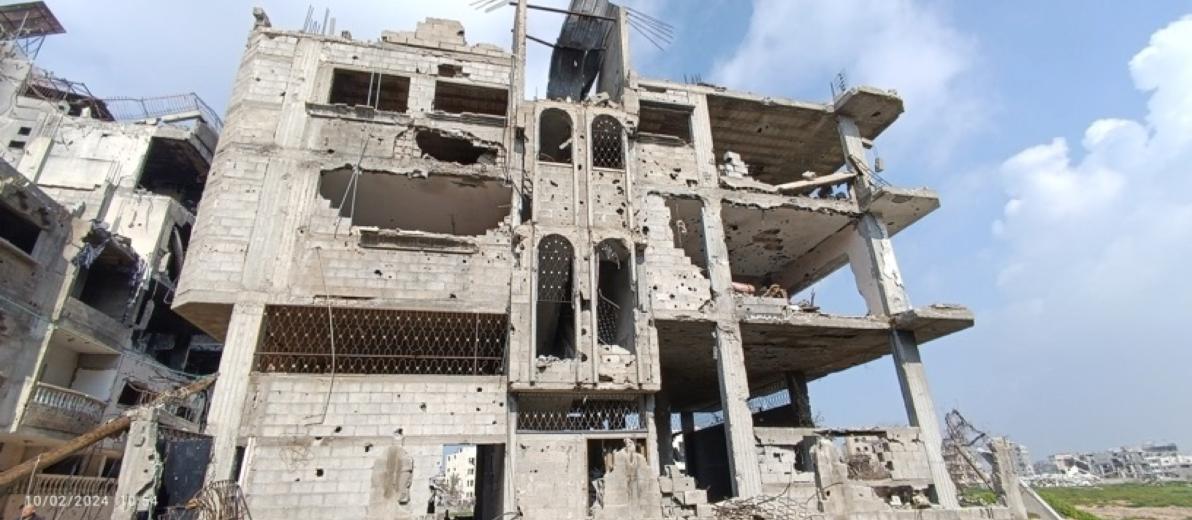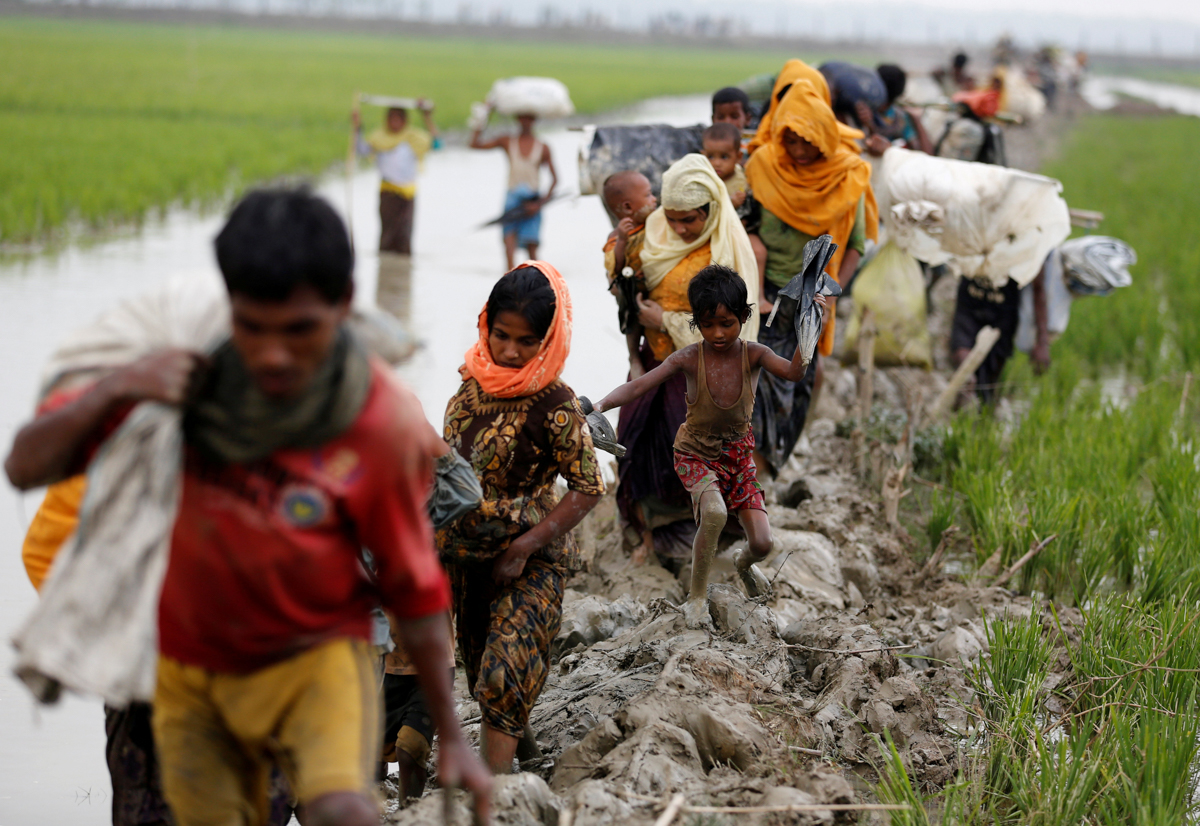
The shocking images of devastated houses and villages and terrified Rohingya Muslims pouring into Bangladesh with babies on their backs and almost nothing else remind me of the experience of my great-grandfather’s generation during the Palestinian exodus (Nakba), when so many of my people were forced from their homes to make way for Israel in 1948.
My great-grandfather is a native of Gaza, but during the Nakba (catastrophe), he used to hire out to farms in Jaffa (Haifa) and other now-occupied cities. But that ended at the same time that refugees flooded into the Strip. Israeli (Jewish) forces expelled more than 700,000 Palestinians from almost 600 sacked villages. They were forced to settle in refugee camps inside Gaza, the West Bank and neighboring countries. Even today, more than 1 million Palestinians still live in eight refugee camps in Gaza; the largest (Jabalia) houses about 110,000 people.
I understand why the Rohingyas are being called “the new Palestinians.” We hear their own catastrophe was triggered when Myanmar forces were attacked by a violent Rohingya faction, killing nearly 100. But Amnesty International has said “at least hundreds” of Rohingya civilians now have been killed by Buddhist forces, and more than 500,000—60 percent kids (14,000 of whom have lost at least one parent)—have been forced to flee into Bangladesh. I call that a “disproportionate” response—a term we know well in Gaza. Just a few rockets shot by an armed group here (typically not killing anyone) usually triggers a massive Israeli response, terrorizing and even killing thousands.
The Muslims of Myanmar have seemingly joined Palestinian among the ranks of the most persecuted minorities on the planet. Both peoples are victims of colonialism and imperialism, since Israeli and Myanmar officials seem intent on “cleansing” us from their land. Israel wants all of historic Palestine—which used to be home to the three Abrahamic religions—for a Jewish state, while the government of Myanmar refuses to recognize the Rohingya Muslims as a legitimate ethnic group.
Displacement and cleansing
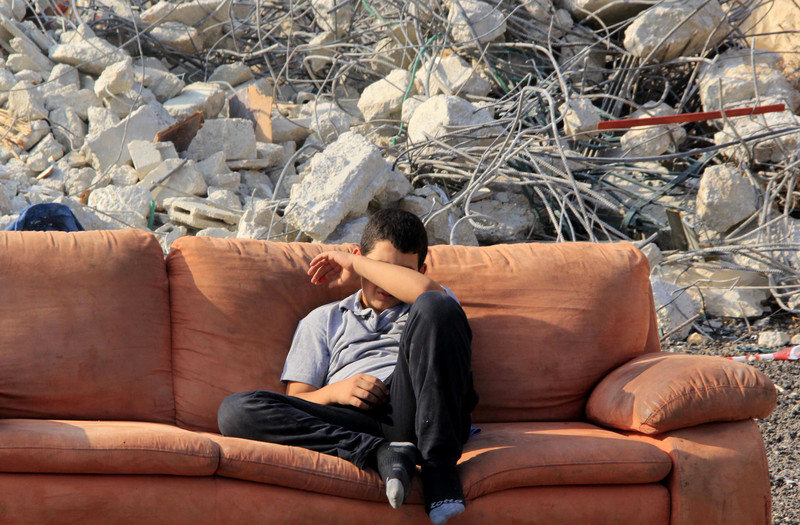
Israel’s tactics against the Palestinians continued after the Nakba; another wave of massive persecution and forced displacement took place in 1967 when its forces occupied the West Bank and East Jerusalem. Today, it relentlessly demolishes our homes, particularly in Jerusalem and the Negev. Right now, for instance, 100 homes in the Silwan Valley of the West Bank are slated for demolition to make way for an “archaeology park.” Moreover, Israel continually expands its illegal settlements on Palestinian lands in its efforts to Judaize Palestine. Just this month, Israeli Prime Minister Benjamin Netanyahu approved building plans for 3,736 new units in Jewish settlements in the occupied West Bank. About 75 percent of originally Palestinian land now is populated by Israeli Jews; it was just 30 percent in 1946, before the Nakba.
Likewise, in Myanmar, satellite images and interviews with refugees revealed that about 1,500 buildings have been destroyed in the attacks, with 200 villages completely burned down. The 2014 census documented that the country's Muslim population had fallen from 3.9 percent to 2.3 percent in the wake of the relentless campaign against them, and it is surely much less now.
Restricted rights
Israel denies visas to Palestinians living abroad so they cannot visit their ancestral lands. It also limits the ability of those living in the occupied territories to travel freely to other areas, abroad or even locally. Palestinians from the West Bank rarely are allowed to visit the Gaza Strip and vice versa; the majority are denied for “security reasons.” A host of other rights—for example, for Gazans to export goods or to fish beyond six miles in our own sea—are denied as well.
Similarly, Rohingyas in the coastal Myanmar state of Rakhine are not allowed to leave without government permission. Any moves to create their own state are denied, yet they have been deprived of the rights of citizenship since 1982. That sounds so very familiar!
And here’s another similarity: refusal to respect international conventions and resolutions. In 2016, for example, Israeli Prime Minister Benjamin Netanyahu ignored a UN resolution calling for the end of illegal Jewish settlements in the West Bank. Likewise, in June, the Myanmar government refused visas for members of a UN team charged with investigating the abuse of Rohingya Muslims.

It is no surprise, then, that Israeli companies supply the Myanmar military with weapons, refusing to comply with calls for an embargo. More than 100 tanks, as well as boats and light weapons, have been sold to the Myanmar government by Israeli arms companies in recent years. One company, TAR Ideal Concepts, has also trained Burmese special forces in northern Rakhine state, where much of the violence is taking place.
Curious whether most Gaza youth were aware of what was happening to the Rohingyas, as well as the sickening parallel with Palestinians, I asked a few of my university friends. They too saw history repeating itself.
Mohammed Abu Qumsan, 22, a Gazan who studies history at Al-Azahar University, believes the Myanmar and Israeli governments are cut from the same cloth. “Why can’t they allow the people to live in peace? That’s all we want, to live like humans in the rest of the world.”
Mariam Abu Laban, 26, believes the silence of the international community equally to blame. “The world is silent, so massacres occur.”
Mariam is right when she said the world is silent. Israel founded its state on Palestinians’ bodies, leaving us stateless on our own land. Yet the international “community” has allowed its colonization of us to continue for more than 60 years. The atrocities of the Myanmar military are attracting attention now, but for how long will that last before the world’s fickle attention goes elsewhere?

